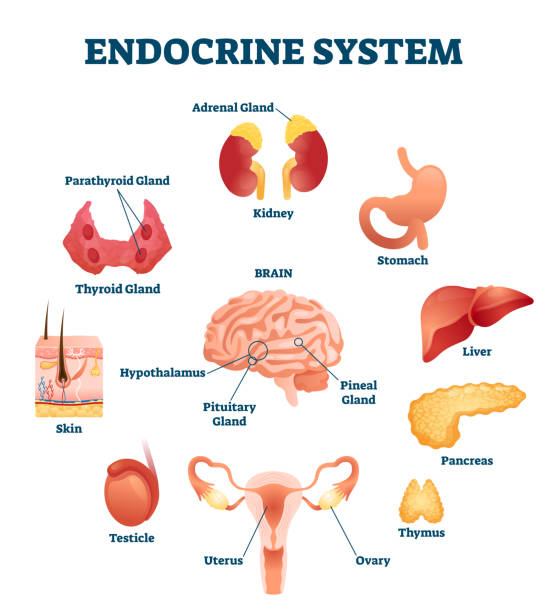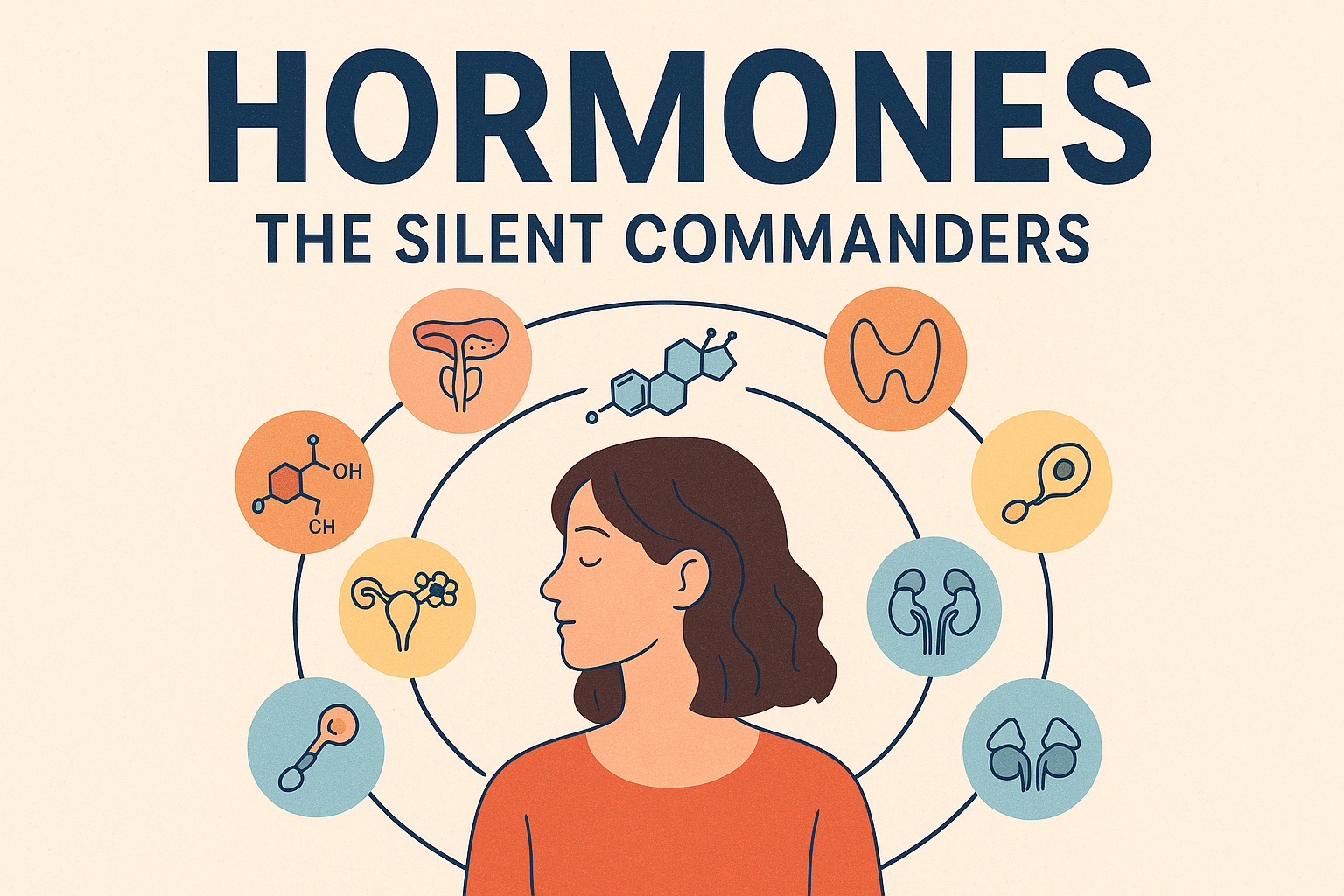Hormones — The Silent Commanders of Your Body and Mind - A Physician’s Perspective

In clinical medicine, some conditions are easy to label — fever, infection, fracture, trauma. The tests are clear, the treatment is direct.
But then there are patients who walk in and say,
“Doctor, I don’t feel like myself anymore.”
They can’t explain it. There’s no single pain, no single trigger. Just a fog of fatigue, irritability, disturbed sleep, hair loss, sudden weight gain, or inexplicable sadness.
In many of these cases, what I’ve often found — after years of practice and quiet observation — is not just a disease.
It is a disturbed orchestra of hormones.

What Are Hormones, Really?
To simplify it for my patients, I say:
Hormones are your body’s command signals — invisible, but powerful.
They don't shout. They don’t show up on the surface.
But they direct everything — how you grow, eat, sleep, love, fight, digest, reproduce, and even how you think and feel.
They are released in small amounts — often measured in micrograms — yet they influence every cell in your body.
And like all good commanders, when they are in balance, you hardly notice them.
But when one of them falters, the entire system feels the disturbance.
The Everyday Hormones We Forget
You don’t have to be a specialist to understand hormones.
Here are just a few examples we deal with every day — in health and illness:
• Insulin – controls blood sugar, metabolism, energy
• Cortisol – stress hormone, affects sleep, immunity, belly fat
• Thyroid hormones (T3, T4) – metabolism, mood, mental clarity
• Estrogen & Progesterone – female reproductive hormones, mood, skin, bones
• Testosterone – strength, libido, motivation in both sexes
• Melatonin – sleep-wake cycle, body clock
• Serotonin & Dopamine – brain chemicals, but influenced by hormones too
Each of these interacts with others. And when even one of them goes out of tune, symptoms appear that are often misunderstood or misdiagnosed.
A Patient Who Taught Me What Hormones Really Do
I recall a woman in her mid-40s. She was intelligent, well-spoken, and had seen five doctors before me. Her complaints?
• Gaining weight without change in diet
• Feeling cold even in summer
• Low energy despite 8 hours of sleep
• Irregular periods
• Constant sadness
She had been told it was “depression,” advised to exercise, and even asked if she was just “thinking too much.”
A simple thyroid function test later, we found hypothyroidism.
Treatment was straightforward. But the lesson stayed with me:
Hormonal imbalances often speak quietly — and if we don’t listen, the patient keeps suffering silently.
What Causes Hormonal Disruption?
In today’s fast-moving, high-stress world, hormone imbalances are becoming more common. Not because our glands have changed, but because our lifestyle has.
Here are some common disruptors:
• Chronic stress – raises cortisol, disturbs thyroid and sex hormones
• Poor sleep – affects melatonin, growth hormone, insulin
• Processed foods & sugar – create insulin resistance
• Lack of movement – reduces testosterone, increases inflammation
• Emotional trauma – suppresses pituitary-adrenal axis
• Environmental toxins – act as endocrine disruptors (plastic, cosmetics, etc.)
When to Suspect Hormonal Imbalance
I advise my patients to look for patterns, not just symptoms.
Ask yourself:
• Am I more tired than I should be for my age?
• Has my weight changed without reason?
• Do I sleep but still feel unrested?
• Is my mood unstable?
• Are my periods (if applicable) different from before?
• Has my skin, hair, libido, or digestion changed?
If the answer to many of these is “yes,” there is a fair chance your hormones are speaking — and waiting to be heard.
How to Restore Balance (Before the Pills)
As a physician, I believe in using medication when needed. But for many hormonal issues — especially early or borderline ones — lifestyle is the real treatment.
Here’s what I gently recommend to all my patients:
• Wake up early.
Let your body reset its circadian rhythm.
• Expose yourself to natural light and nature.
This alone lowers cortisol and improves serotonin.
• Avoid processed sugar and fake fats.
These confuse your insulin and estrogen pathways.
• Sleep before midnight.
That’s when hormonal repair begins.
• Walk, breathe, stretch daily.
Movement helps hormones find their rhythm again.
• Think clean, eat clean, live clean.
What you feed your body is what your body uses to build its hormones.
I’ve seen lab reports with normal numbers and patients who are clearly not well.
And I’ve seen patients transform — not with aggressive drugs, but with gentle awareness of what their body was trying to say.
So, the next time your body feels “off,”
Don’t dismiss it as age, laziness, or mood.
It could be your hormones — those silent commanders — trying to restore order in a world of noise.
Listen.
Your body is wise.
And it always speaks — if we’re willing to hear.
By Dr. Mohammed Tanweer Khan
A Proactive/Holistic Physician
Founder of WithinTheBody.com
